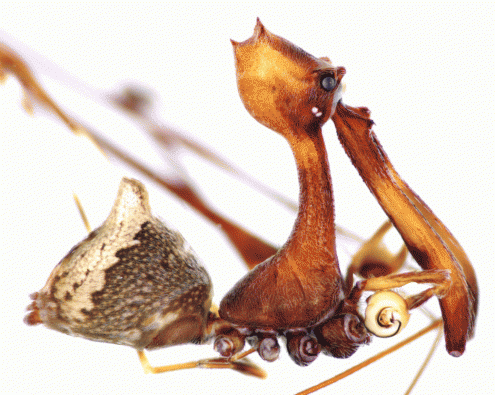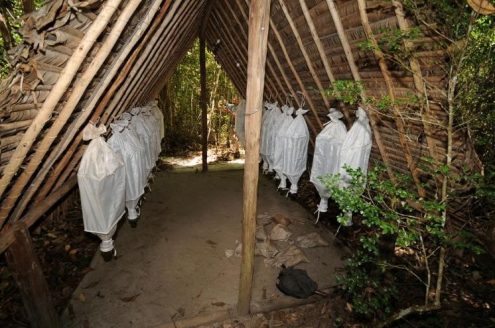Nikolaj Scharff discovers 18 new pelican spider species in Madagascar
The East African island of Madagascar is world renowned for its incredible biodiversity. The island is home to about 5 percent of the world’s animal and plant species, and the island’s biological diversity thus far has been described only to a limited extent. However, a new research study is about to change this. Nikolaj Scharff, from the Center for Macroecology, Evolution and Climate at the University of Copenhagen, and Dr. Hannah Wood, from the Smithsonian Institution, have discovered 18 new species of pelican spiders on the island. The researchers’ discovery was recently published in the journal, ZooKeys.
Read Videnskab.dks article about the discovery here (Danish)
According to Scharff, what makes these spiders particularly interesting for researchers is their bodies: “If you look at a house spider, its body is split into a front and a back where the eyes are placed just above the mouth. But with the pelican spider, the head and the eyes have been extended with a long neck, like a giraffe, and because the mouth is placed at the bottom of the neck, the mouthpieces are unusually long and equipped with a poisonous hook at the end.”

Not only does the pelican spider look different from other, more widespread species of spiders but it also acts differently. It is the only spider in the world that feeds itself by catching, poisoning, and eating smaller spiders.
The researchers carried out major field and sorting work on the island before they discovered the new species. One of the capture methods they used was “Winkler traps,” whereby a sample of forest material is collected and dried and the spiders collected in the sample fall into the bottom of the trap. After using the traps, the researchers carried out a larger analysis of the samples, which resulted in the discovery of the 18 new species.

This new research will probably not be the last one to carry out this kind of field work on Madagascar. According to Scharff, they expect to find even more new pelican spider species in the future.
